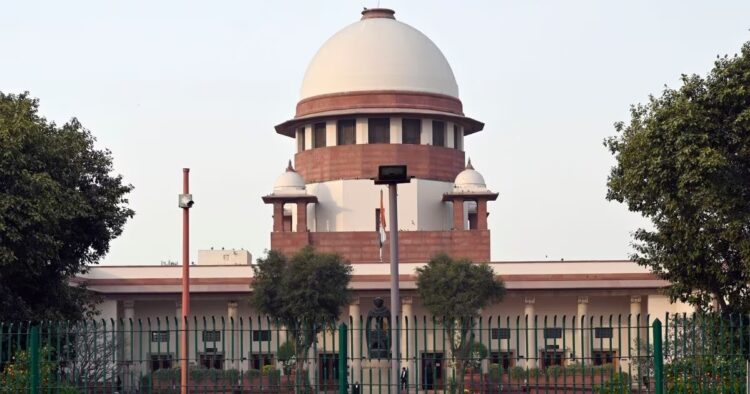The Supreme Court of India has dismissed a group of review petitions challenging its earlier decision to uphold the revocation of Article 370. This article previously granted special autonomy to the region of Jammu and Kashmir.
The bench, led by Chief Justice of India D.Y. Chandrachud, stated, “Having perused the review petitions, there is no error apparent on the face of the record. No case for review under Order XLVII, Rule 1 of the Supreme Court Rules 2013. The review petitions are, therefore, dismissed.”
The bench also included Justices Sanjiv Khanna, B.R. Gavai, Surya Kant, and A.S. Boppana. They denied the requests for an open court hearing and for the petitioners to present their arguments in person.
Supreme Court dismisses pleas seeking review of its judgement where it upheld the validity of the Union government's 2019 decision to abrogate Article 370 of the Constitution which conferred the special status of Jammu and Kashmir. pic.twitter.com/qlM7JP6kor
— ANI (@ANI) May 21, 2024
These review petitions were filed under Article 137 of the Constitution. They argued against the Supreme Court’s decision from December 11, 2019, which had upheld the government’s action. The petitioners contended that the court should not have left unresolved the issue of whether Parliament can dissolve a state’s status by converting it into one or more Union Territories.
In the December 11 verdict, the Constitution Bench, also headed by CJI Chandrachud, affirmed Ladakh’s status as a Union Territory. This decision was based on Article 3(a) and Explanation I of the Constitution, which allows the formation of a Union Territory by separating a territory from a state.
However, the bench did not address whether Parliament can remove a state’s status entirely by converting it into Union Territories.
The court noted the Solicitor General’s assurance that statehood would eventually be restored to Jammu and Kashmir. Because of this, the court did not find it necessary to decide on the legality of reorganizing Jammu and Kashmir into the Union Territories of Ladakh and Jammu & Kashmir.
ALSO READ: “Amit Shah Hails Rise in Voter Turnout as Success of Article 370 Abrogation”
In addition, the Supreme Court held that the President of Bharat has the authority to issue a notification declaring the cessation of Article 370, even after the dissolution of Jammu and Kashmir’s Constituent Assembly. The court highlighted that Article 370 was intended as a temporary provision, reflecting the historical context of its inclusion in the Indian Constitution.
The Supreme Court also directed the Election Commission of India to organize elections for the Legislative Assembly of Jammu and Kashmir by September 30, 2024. This move aims to restore democratic processes in the region.
Noting, review petitions in the Supreme Court are evaluated on narrow grounds, such as legal mistakes or evident errors in the record. These petitions are often dismissed without a full court hearing, as was the case here.
The dismissal signifies the finality of the court’s stance on the revocation of Article 370 and the reorganization of Jammu and Kashmir and Ladakh.

















Comments